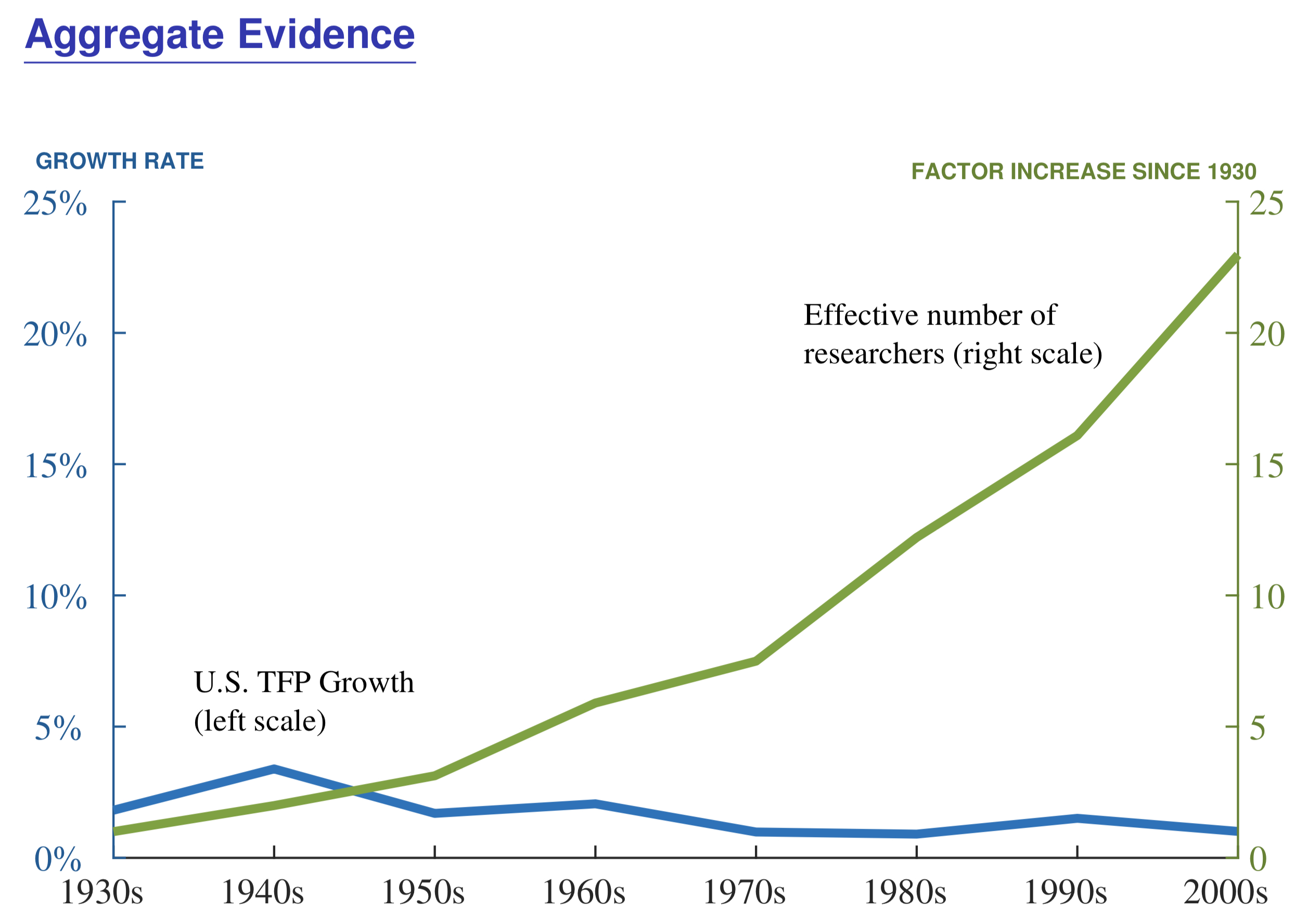This is a review of a recent paper Are Ideas Getting Harder to Find? by Charles I. Jones. Slides are also available.
The central content of the paper is answering the question with the following formula :
Economic growth = Research productivity × Number of researchers
The paper presents evidence and arguments that even the economic growth has been relatively stable over the years, there is a clear downwards trend in the research productivity. This is compensated by more and more people getting into research. Here is a graph from paper showing those two trends:

The idea machine analogy is great - it requires double the input ust to keep the same output.How you define research productivity is similar to normal definition of productivity - how many new ideas are generated per researcher.
The paper than on goes an applies this theory and formulation to number of settings:
- Moore’s law example.
- Agricultural innovation example - seed yield of Corn, Soybeans, Cotton, Wheat.
- Medicine example - new drugs approved by FDA. (I am not sure this is the best metric). They also look at life expectancy and cancer research data from spending and effect point of view.
We can also use it in predictive form :
“We have to double our research effort every decade just to keep up with declining research productivity!”
The thing I am not sure the model incorporates well is that many of the research ideas are non-linear. By that I mean it takes years of foundational work that will be suddenly useful in a totally new area, that the original research never considered. That to me is an essential part of research.
So, the authors present strong evidence that research productivity is slowing down.
“We have to double research effort every 13 years to maintain constant growth.”, what the author calls Red Queen problem - we have to run faster and faster to stay in the same place.
The outlook doesn’t look good. The slow research growth has a direct impact on economic growth. One can argue that some of its effect are already being across the world.
In general, measuring research productivity is a hard challenge. Having spent couple of years at Microsoft Research, I can relate to how difficult it is - both objectively and personally. During my time at MSR, once we had a long discussion about if ideas are actually getting harder to find. It started with someone mentioning that he wished he had born much earlier, that way there was so much to invent and so many low hanging fruit. I was on the other side and told him that thanks to him being born late, he has access to so many tools at his disposal in his research. Sort of like having a ladder, which makes fruits “low-hanging”. He wasn’t convinced. So, when I saw this paper from AMA by Patrick Collison, I was intrigued to read it. This was also my foray into reading things that I don’t understand directly or have a deep background. I felt I really didn’t get much from reading this, but I will continue to explore more.
